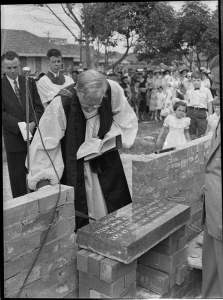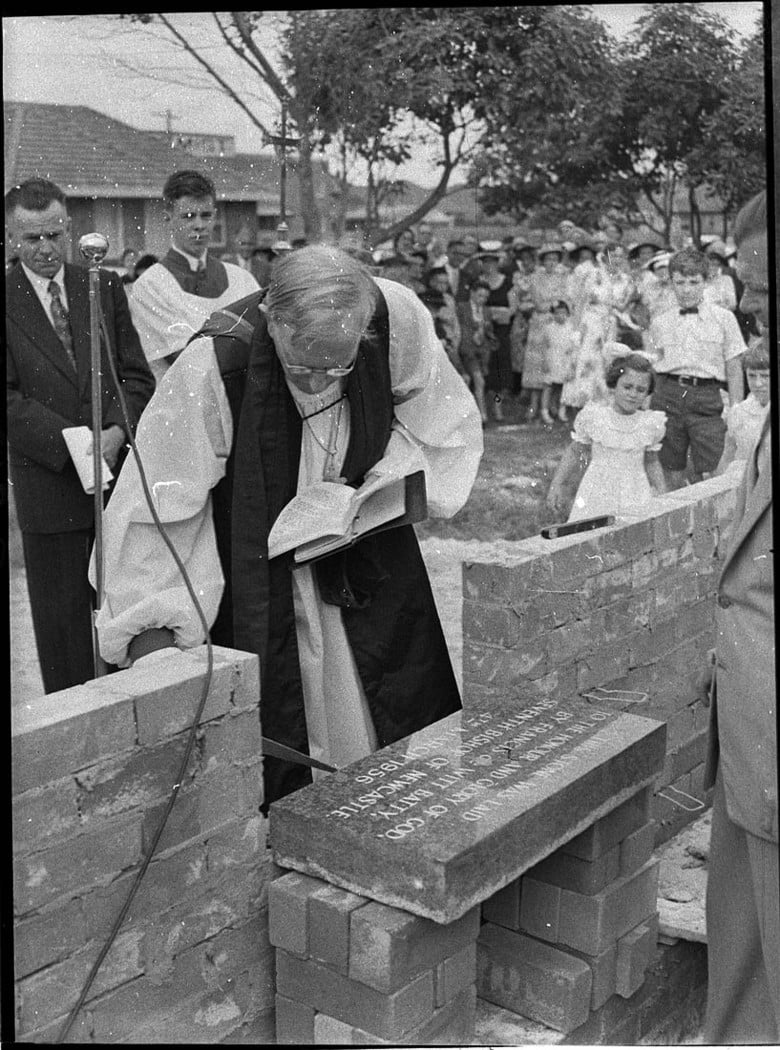
Name: Francis de Witt Batty
Epoch: Early 20th Century (the \'Long Early Twentieth Century\')
Grouping Field: Humanities (Ideas Formatted as Ideas) and Social Science (Models)
Location Grouping: Individual\'s Work Location
Map Coordinates: 27°27\'49.0\"S 153°01\'47.2\"E
Years At Location: 1916-1931
One Historical Setting: Most Rev. Francis de Witt Batty, St. John\'s Anglican Cathedral, Ann Street, Brisbane City (1916)
de Witt Batty (as he was usually known) was the domestic chaplain and secretary to the Bishop of Brisbane (St Clair Donaldson) from 1904. Batty was made Sub-Dean and Canon residentiary of St John’s Cathedral in 1916. de Witt Batty became Bishop of Newcastle in 1931.
de Witt Batty was a graduate of Balliol College, Oxford, graduating with a second-class in Litterae Humaniores in 1902 (M.A., 1905). Ken Cable described Batty as being “aware of Britain’s imperial obligations and opportunities, and acquired that sense of high moral responsibility combined with an aloofness of manner and a rueful acknowledgment of the weaknesses of lesser mortals which he always retained.” John Moses has argued that the negative perception of de Witt Batty came from the Sydney Anglican fundamentalists whom de Witt Batty accused of fallacy of ‘Bibliolatry’.
de Witt Batty’s scholarship is a mixture from examining the 21 NLA Trove records for his books and manuscripts. It is a combination of church history, theology, and ecclesiastical manuals. His Oxford-standard Anglo-Catholic theology would well-surrounded the evangelical theology coming from Sydney diocese in this era, but de Witt Batty’s church history was well-below the standard seen in the writings of William Wand (See the entry).
de Witt Batty was another church politician rather than an exacting scholar, although Cable believed Batty (also a common nickname) “disdain those Church ‘parties’ whose contests were then particularly virulent.” Despite Cable’s assessment, Batty represented Donaldson “at meetings with governors, politicians and ecclesiastics.” Batty was the clever politician who, no doubt, skilfully avoided the polemics; the rhetoric as seen among the fundamentalists.
Batty, however, did retain a higher level of locally-produced scholarly work during his tenure, and he lectured at St Francis’s College, greatly improving the standard in that institution. He became a Fellow of the Australian College of Theology, and published pamphlets on Church reunion and the ministry of healing.
K. J. Cable, ‘Batty, Francis de Witt (1879–1961)’, Australian Dictionary of Biography, National Centre of Biography, Australian National University, http://adb.anu.edu.au/biography/batty-francis-de-witt-5155/text8649, published first in hardcopy 1979, accessed online 24 June 2019.
Murray, Joan Elizabeth. Francis de Witt Batty, the Bishop, the Leader, the Man: Memoirs and Extracts from his Writings, Newey & Beath, Newcastle, N.S.W, 1996.
Moses, John. Email Conservation, 30 January 2020.
Francis de Witt Batty. Photographer: Sam Hood [https://commons.wikimedia.org/w/index.php?curid=36469790]
